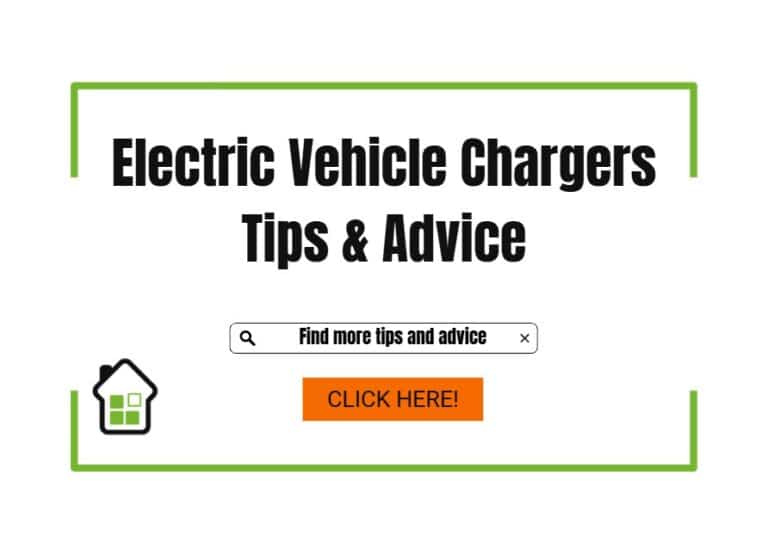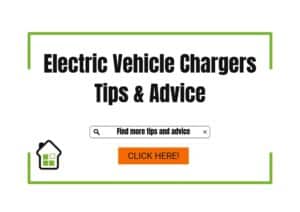Home EV Charger Installation
- Home
- Home EV Charger Installation
PROFESSIONAL HOME EV CHARGER INSTALLATION
#1 FOR AIR HOME EV CHARGERS

We understand how important it is to have a reliable and efficient charging solution for your electric vehicle at home. Our EV charger installation services make it simple to enjoy the convenience of fast, safe, and cost-effective charging, ensuring your vehicle is always ready when you need it. We supply, install, and maintain a wide range of home charging units, using the latest technology to provide practical solutions tailored to your property and lifestyle.
Our team of qualified engineers handles everything from initial consultation and charger selection to installation, safety checks, and configuration. We also provide ongoing maintenance and support, carrying out regular inspections to ensure your charging system continues to perform at its best.
Read Our Reviews:

INTERESTED IN AN EV CHARGER?
- Expert Tradesman
- Tailored Solutions
- Comprehensive Support
- Supplied
- Installed
- Maintained
- Supported
"You can trust us and our tradespeople"

"Excellent work, great bunch of guys. Richard showed us through every step of the way. 100% fantastic." Mr & Mrs MacDonald on 3rd April 2024
"Fantastic work and a great fantastic team. Urgent work was needed before Christmas and they stepped up to the plate. I would highly recommend Complet Property Solution Mr Philipson on 2nd December 2023

Satisfaction guarantee

Quality Service Every Time

Excellent Communication

Swift Response & Fix Times
Expert Home EV Charger Installation
Home EV Chargers
Home Electric Vehicle Charger Installation Areas in Malaga (Costa del Sol), Cadiz & Gibraltar: Malaga City, Marbella, Torremolinos, Fuengirola, Benalmadena, Estepona, Manilva, Sotogrande, Pueblo Nuevo, San Roque, Los Barrios, Jerez, & More…

Choosing a professional installation for your home EV charger is not only about convenience, but also about safety and efficiency. Our experienced engineers are fully trained and certified to ensure every installation meets UK and Spanish regulations. We carefully assess your home’s electrical system, recommend the most suitable charger for your needs, and carry out all work to the highest standards. This guarantees safe charging, long-term reliability, and protection for both your home and your vehicle.
Installing a dedicated home charger offers significant benefits compared with relying on public charging stations or standard three-pin sockets. With a properly fitted unit, you’ll enjoy faster charging speeds, lower electricity costs by taking advantage of off-peak tariffs, and the convenience of plugging in your vehicle at home whenever it suits you. Regular servicing and maintenance checks also ensure your system continues to operate at peak performance, giving you peace of mind day after day.
![]() Fully qualified engineers with recognised certification
Fully qualified engineers with recognised certification
![]() Compliance with UK and Spanish safety standards
Compliance with UK and Spanish safety standards
![]() Bespoke advice on the best charger for your property and vehicle
Bespoke advice on the best charger for your property and vehicle
![]() Faster charging times compared with standard plugs
Faster charging times compared with standard plugs
![]() Ongoing support and maintenance for lasting reliability
Ongoing support and maintenance for lasting reliability
Types of Home EV Charger
When choosing a home EV charger, it’s important to understand the different types available. Chargers vary in speed, functionality, and features, so selecting the right one depends on your vehicle, lifestyle, and budget. A professional installer can assess your property and recommend the most suitable option, ensuring safe and efficient charging every time.
Slow Chargers (3kW)
Slow chargers are the most basic option for home charging, typically using either a standard three-pin plug or a simple wall-mounted unit. They are the cheapest to install but also the slowest to operate, often taking more than 12 hours to fully charge an electric vehicle. These chargers are best suited for households with low daily mileage or for plug-in hybrid vehicles with smaller batteries that do not require rapid charging.
Fast Chargers (7kW – 22kW)
Fast chargers are the most popular choice for households throughout europe. A 7kW charger can typically charge most electric cars within 6 to 8 hours, making it ideal for overnight use. Where three-phase electricity is available, a 22kW charger can reduce this time significantly. These chargers provide a practical balance between affordability and performance, making them the go-to option for most EV owners who rely on their vehicle daily.
Smart Chargers
Smart chargers are the most advanced type, offering features that go beyond simply charging your car. They connect to Wi-Fi or mobile apps, allowing you to schedule charging during off-peak energy hours, track usage, and even integrate with renewable energy systems such as solar panels. By optimising when and how you charge, smart chargers reduce running costs, improve convenience, and help lower your carbon footprint. For most EV drivers looking for efficiency and long-term value, a smart charger is the most forward-thinking choice.
Benefits of a Home EV Charger
Installing a dedicated home EV charger provides a wide range of advantages that make electric vehicle ownership more convenient, cost-effective, and sustainable. Unlike relying on public charging points or slow three-pin sockets, a home charger is designed specifically for efficiency and safety. It gives you peace of mind knowing your vehicle is charged reliably and ready whenever you need it, while also helping reduce long-term costs and supporting a greener lifestyle.
Convenience: Charge your car at home overnight and wake up to a full battery every morning.
Faster Charging: Dedicated chargers deliver quicker charging speeds compared with standard sockets.
Cost Savings: Use off-peak energy tariffs or smart charging schedules to lower bills.
Safety: Professionally installed units meet strict UK and Spanish safety regulations.
Sustainability: Pair with solar panels or renewable energy for cleaner, eco-friendly charging.
 We select the most qualified, professional tradesman for our clients and
We select the most qualified, professional tradesman for our clients and delivering exceptional service is our number one priority. If you feel you fit the bill, please click “Join Us“ and complete our enrolment form and we’ll contact you back.
delivering exceptional service is our number one priority. If you feel you fit the bill, please click “Join Us“ and complete our enrolment form and we’ll contact you back.
** Please provide any qualification certificates & tradesman insurance details **
 Last updated
Last updated06 Sep 2025
By Administration
REQUEST A QUOTE
 Interested in a Home EV Charger?
Interested in a Home EV Charger?Services
- Plumbers
- Electricians
- Carpenters & Joiners
- Locksmiths
- Builders & Bricklayers
- Plasterers
- Glaziers
- Roofers
- Fencers
- Landscape Gardeners
- HVAC Engineers
- Air Conditioning Engineers
- Solar Installers
Common Jobs
- Air Conditioning Installations
- Air Conditioning Servicing
- Seasonal AC Servicing
- AC Filter Cleaning and Replacement
- Leak Detection and Recharging
- Coil and Condenser Cleaning
- Condensate Line Cleaning
- Thermostat Testing or Replacement
- AC Component Repairs
- Emergency Call-Outs
- Full System Annual Inspections
HOME EV CHARGERS
COMMERCIAL EV CHARGER
Home EV chargers are designed to make owning an electric vehicle as convenient and cost-effective as possible. A dedicated unit installed at your property allows you to charge your car safely and quickly, without relying on public charging points or slow three-pin sockets.
Most households benefit from a 7kW charger, which provides a full overnight charge, while smart chargers give you additional control, letting you schedule charging during off-peak hours and even integrate with solar panels. By investing in a professionally installed home charger, you enjoy faster charging speeds, lower costs, and the peace of mind that comes with safe, reliable technology.
Commercial EV chargers provide a robust and scalable solution for businesses, workplaces, and public environments where multiple vehicles need to be charged efficiently. These systems are built to handle higher usage and can include advanced features such as load balancing, payment integration, and smart energy management.
Installing commercial chargers helps businesses support staff, attract customers, and demonstrate their commitment to sustainability. From office car parks to retail spaces and fleet depots, commercial EV charging is an investment that improves accessibility, reduces environmental impact, and enhances a company’s reputation as forward-thinking and eco-friendly.
10 Things to Consider Before Installing a Home EV Charger
 Installing a home EV charger is one of the best ways to make owning an electric vehicle more convenient, cost-effective, and sustainable. However, before going ahead, it’s important to think carefully about the different factors that influence the safety, performance, and long-term value of your installation. From checking your home’s electrical capacity to deciding on the right type of charger and understanding smart features, every detail plays a role in ensuring you get the best results. Below, we’ve highlighted ten key points to consider before installing a home EV charger.
Installing a home EV charger is one of the best ways to make owning an electric vehicle more convenient, cost-effective, and sustainable. However, before going ahead, it’s important to think carefully about the different factors that influence the safety, performance, and long-term value of your installation. From checking your home’s electrical capacity to deciding on the right type of charger and understanding smart features, every detail plays a role in ensuring you get the best results. Below, we’ve highlighted ten key points to consider before installing a home EV charger.
Electrical Capacity of Your Home
 Before installing an EV charger, it’s important to check whether your home’s electrical system can handle the additional load. Most modern homes can support a 7kW charger, but older properties may need an upgrade to the consumer unit or wiring. A qualified electrician can carry out a full assessment and recommend any necessary improvements. Ensuring the electrical system is safe and compliant prevents risks and guarantees your charger performs reliably.
Before installing an EV charger, it’s important to check whether your home’s electrical system can handle the additional load. Most modern homes can support a 7kW charger, but older properties may need an upgrade to the consumer unit or wiring. A qualified electrician can carry out a full assessment and recommend any necessary improvements. Ensuring the electrical system is safe and compliant prevents risks and guarantees your charger performs reliably.
![]() Assess your current electrical supply capacity
Assess your current electrical supply capacity
![]() Upgrade consumer units if required
Upgrade consumer units if required
![]() Check for existing circuit protection
Check for existing circuit protection
![]() Ensure compliance with UK electrical regulations
Ensure compliance with UK electrical regulations
![]() Professional assessment avoids long-term issues
Professional assessment avoids long-term issues
Type of Charger You Need

Different EV chargers are available, including slow, fast, and smart units. The right choice depends on your driving habits, vehicle type, and budget. Fast chargers, typically 7kW, are the most popular for UK households as they provide a full charge overnight. Smart chargers are increasingly recommended as they allow for scheduling, remote control, and integration with renewable energy systems. Choosing the right charger ensures you get the balance of speed, convenience, and long-term value.
![]() Slow chargers are inexpensive but very slow
Slow chargers are inexpensive but very slow
![]() Fast chargers (7kW–22kW) suit most households
Fast chargers (7kW–22kW) suit most households
![]() Smart chargers add efficiency and control
Smart chargers add efficiency and control
![]() Match charger type to driving habits
Match charger type to driving habits
![]() Consider future-proofing for your next EV
Consider future-proofing for your next EV
Location of Installation

The placement of your EV charger is important for both practicality and safety. Most chargers are installed on an external wall near the driveway or garage. Ideally, the location should provide easy access to your vehicle without creating trip hazards from cables. Weatherproof units are designed for outdoor use, but proper installation helps extend their life. Planning the installation spot carefully makes everyday charging convenient and efficient.
![]() Install close to where you park your car
Install close to where you park your car
![]() Reduce cable length to avoid hazards
Reduce cable length to avoid hazards
![]() Choose a weatherproof outdoor location
Choose a weatherproof outdoor location
![]() Ensure wall strength for secure fitting
Ensure wall strength for secure fitting
![]() Plan for both current and future vehicles
Plan for both current and future vehicles
Charging Speed Requirements

Your charging speed will depend on the charger’s output and your vehicle’s onboard capacity. A 7kW charger is sufficient for most drivers, offering a full overnight charge. However, if you travel long distances daily or own a vehicle with a larger battery, you may benefit from a faster unit, provided your home supports it. Understanding your charging needs avoids overpaying for unnecessary speed or underinvesting in a system that doesn’t keep up.
![]() Match charger output to vehicle battery size
Match charger output to vehicle battery size
![]() 7kW chargers suit most daily users
7kW chargers suit most daily users
![]() 22kW chargers need three-phase electricity
22kW chargers need three-phase electricity
![]() Faster charging reduces downtime for high-mileage drivers
Faster charging reduces downtime for high-mileage drivers
![]() Assess long-term needs before deciding
Assess long-term needs before deciding
Smart Features and Connectivity

Smart EV chargers offer a range of benefits, including the ability to schedule charging during off-peak hours, track energy use, and integrate with solar panels. Some can be managed via smartphone apps, providing greater control over when and how you charge. While they cost more upfront, smart chargers often pay for themselves over time through energy savings. Considering smart functionality helps future-proof your installation.
![]() Schedule charging at off-peak electricity rates
Schedule charging at off-peak electricity rates
![]() Monitor and track energy usage via apps
Monitor and track energy usage via apps
![]() Pair with renewable energy systems
Pair with renewable energy systems
![]() Benefit from automatic software updates
Benefit from automatic software updates
![]() Improve efficiency and cost savings
Improve efficiency and cost savings
Cost of Installation

The total cost of installing a home EV charger includes both the unit itself and professional installation. Prices vary depending on charger type, property wiring, and any upgrades needed to your electrical system. While cheaper units are available, it’s worth investing in a reliable brand with safety certification. Professional installation ensures compliance with UK regulations and long-term peace of mind.
![]() Factor in the cost of the charger and installation
Factor in the cost of the charger and installation
![]() Additional wiring upgrades may be needed
Additional wiring upgrades may be needed
![]() Cheaper units may lack safety features
Cheaper units may lack safety features
![]() Professional installation guarantees compliance
Professional installation guarantees compliance
![]() Quality equipment reduces future costs
Quality equipment reduces future costs
Energy Tariffs and Running Costs

Charging your car at home can increase your electricity usage, so it’s worth exploring off-peak tariffs and EV-specific energy plans. Many providers offer cheaper rates at night, which is ideal for scheduling overnight charging. A smart charger makes it easier to take advantage of these rates automatically. Understanding your energy options helps you maximise savings and reduce your overall running costs.
![]() Research off-peak energy tariffs
Research off-peak energy tariffs
![]() Schedule charging to save money
Schedule charging to save money
![]() Use smart chargers for automation
Use smart chargers for automation
![]() Compare suppliers for EV-friendly plans
Compare suppliers for EV-friendly plans
![]() Reduce costs with renewable energy integration
Reduce costs with renewable energy integration
Safety and Compliance

Safety should always be a priority when installing a home EV charger. Professional installation ensures compliance with electrical safety standards and reduces risks such as overheating or electrical faults. Many chargers also come with built-in safety features, such as automatic shut-off and surge protection. Choosing a qualified installer gives you confidence that your system is safe and reliable.
![]() Professional installation is essential
Professional installation is essential
![]() Compliance with UK safety standards guaranteed
Compliance with UK safety standards guaranteed
![]() Built-in safety features protect your property
Built-in safety features protect your property
![]() Prevents overheating and electrical risks
Prevents overheating and electrical risks
![]() Certification provides reassurance and warranty protection
Certification provides reassurance and warranty protection
Future-Proofing Your Installation

As EV technology advances, considering future needs is important when installing a charger. Even if your current car doesn’t require high-capacity charging, your next one might. Opting for a smart charger or higher-capacity unit now saves you from needing a replacement later. Planning ahead ensures your installation remains suitable for years to come, even as technology evolves.
![]() Choose chargers that support multiple vehicle types
Choose chargers that support multiple vehicle types
![]() Smart chargers offer long-term flexibility
Smart chargers offer long-term flexibility
![]() Higher-capacity units reduce future upgrades
Higher-capacity units reduce future upgrades
![]() EV technology is advancing rapidly
EV technology is advancing rapidly
![]() Future-proofing saves time and money later
Future-proofing saves time and money later
Ongoing Maintenance and Support

Although EV chargers are designed to be low-maintenance, occasional servicing ensures long-term reliability. Maintenance may include visual inspections, software updates, and electrical safety checks. Having access to professional support means any issues can be resolved quickly, reducing downtime. Considering ongoing care when choosing your installer provides peace of mind that help is always available if needed.
![]() Regular inspections ensure safety and reliability
Regular inspections ensure safety and reliability
![]() Software updates improve efficiency
Software updates improve efficiency
![]() Access to technical support reduces downtime
Access to technical support reduces downtime
![]() Preventative care extends charger lifespan
Preventative care extends charger lifespan
![]() Professional backup provides peace of mind
Professional backup provides peace of mind
Why Trust Our Tips and Advice?
Expert Knowledge: Our tips come straight from licensed professionals with years of experience in the field. We provide actionable advice that you can implement immediately, saving you time and money.
Common Questions | EV Charger Installation

Installing a home EV charger requires careful planning and professional expertise to guarantee safety, efficiency, and long-term reliability. A proper installation involves selecting the right charger for your vehicle and property, ensuring it is positioned for convenience, and integrating it seamlessly with your home’s electrical system. By following best practices and using qualified installers, you can enjoy faster charging times, lower running costs, and complete peace of mind. Below, you’ll find detailed answers to frequently asked questions about EV charger installation, servicing, and ongoing maintenance.-See our full FAQs
Expert Electric Vehicle Charger Installation Services
Our team of Electrical Engineers experts stand out for their knowledge, professionalism, and commitment to delivering exceptional results. Every Electrician is fully qualified and trained to the highest UK and EU standards, ensuring your installation is not only safe but also optimised for performance and efficiency.
We take the time to understand your home, your vehicle, and your charging habits, so we can recommend and install the perfect solution tailored to your needs. With years of hands-on experience and a reputation built on trust and reliability, we provide a seamless service from consultation to installation and ongoing support.
Choosing our experts means choosing peace of mind, convenience, and the confidence that your EV charging is in the very best hands.
REQUEST A QUOTE
 Interested in an EV Charger?
Interested in an EV Charger?What types of home EV chargers are available?
 Home EV chargers come in different types, offering various speeds and features depending on your needs. The most common are slow chargers (around 3kW), fast chargers (7kW–22kW), and smart chargers, which allow you to schedule charging and track usage through apps. For most UK households, a 7kW fast charger is the best balance of cost and performance, providing a full overnight charge for most vehicles. Smart chargers are becoming increasingly popular because they help reduce running costs and integrate with renewable energy.
Home EV chargers come in different types, offering various speeds and features depending on your needs. The most common are slow chargers (around 3kW), fast chargers (7kW–22kW), and smart chargers, which allow you to schedule charging and track usage through apps. For most UK households, a 7kW fast charger is the best balance of cost and performance, providing a full overnight charge for most vehicles. Smart chargers are becoming increasingly popular because they help reduce running costs and integrate with renewable energy.
![]() Slow chargers: cheapest, but very slow charging
Slow chargers: cheapest, but very slow charging
![]() Fast chargers (7kW–22kW): suitable for most homes
Fast chargers (7kW–22kW): suitable for most homes
![]() Smart chargers: app-controlled and energy efficient
Smart chargers: app-controlled and energy efficient
![]() Options for tethered (fixed cable) or untethered units
Options for tethered (fixed cable) or untethered units
![]() Choice depends on driving habits and property setup
Choice depends on driving habits and property setup
How do I know which charger is best for my vehicle and home?

Choosing the right EV charger depends on your vehicle’s battery size, your home’s electrical capacity, and how often you drive. A 7kW charger is the standard for most homes and provides a full charge overnight. If you drive longer distances daily, or your property has three-phase electricity, you may consider a faster 22kW charger. Smart chargers are ideal for those wanting to take advantage of off-peak energy tariffs or integrate solar power. A professional installer will assess your property and recommend the most suitable option.
![]() Match charger power to your vehicle’s battery size
Match charger power to your vehicle’s battery size
![]() Standard 7kW units suit most UK households
Standard 7kW units suit most UK households
![]() Faster 22kW units require three-phase supply
Faster 22kW units require three-phase supply
![]() Smart chargers give cost savings and flexibility
Smart chargers give cost savings and flexibility
![]() Professional advice ensures the best long-term choice
Professional advice ensures the best long-term choice
How long does it take to fully charge an electric car with a home charger?

The charging time depends on your vehicle’s battery capacity and the type of charger installed. A typical 7kW home charger will charge most electric cars in 6 to 8 hours, making it ideal for overnight use. Larger batteries or higher daily mileage may require a faster 22kW charger, though this is only possible with a three-phase power supply. Slow chargers, such as three-pin plugs, can take over 12 hours and are not recommended for regular use. With the right home charger, you’ll always start the day with a full battery.
![]() 7kW chargers: 6–8 hours for most EVs
7kW chargers: 6–8 hours for most EVs
![]() 22kW chargers: 3–4 hours (requires three-phase)
22kW chargers: 3–4 hours (requires three-phase)
![]() Slow chargers: 12+ hours via standard plug
Slow chargers: 12+ hours via standard plug
![]() Charging time varies by vehicle battery size
Charging time varies by vehicle battery size
![]() Overnight charging is most convenient for drivers
Overnight charging is most convenient for drivers
Do I need to upgrade my home’s electrical system before installing a charger?

Not all homes are immediately ready for an EV charger, particularly older properties with outdated consumer units or limited electrical capacity. A qualified installer will assess your property to ensure it can safely support the additional load. In many cases, only minor upgrades are required, but if your system is outdated, it may need significant improvements to meet current safety standards. Upgrading ensures your charger operates safely, prevents power issues, and protects both your home and vehicle.
![]() Older homes may need consumer unit upgrades
Older homes may need consumer unit upgrades
![]() Electrical assessments are always carried out first
Electrical assessments are always carried out first
![]() Safety checks prevent overload and risks
Safety checks prevent overload and risks
![]() Upgrades future-proof your installation
Upgrades future-proof your installation
![]() Professional installers ensure compliance with UK regulations
Professional installers ensure compliance with UK regulations
Can you install both tethered and untethered charging units?

Yes, both tethered and untethered units can be installed depending on your preference. A tethered charger comes with a fixed charging cable permanently attached, making it quick and easy to plug in your vehicle. Untethered chargers have a socket only, allowing you to use different cables depending on your vehicle type. Each option has its advantages: tethered units offer convenience, while untethered models provide flexibility, especially if you change your car in the future. Your installer will help you decide which option best suits your needs.
![]() Tethered chargers: cable permanently attached
Tethered chargers: cable permanently attached
![]() Untethered chargers: socket-only for flexibility
Untethered chargers: socket-only for flexibility
![]() Tethered units are quick and convenient
Tethered units are quick and convenient
![]() Untethered units suit multiple vehicle types
Untethered units suit multiple vehicle types
![]() Choice depends on convenience versus flexibility
Choice depends on convenience versus flexibility
What’s the difference between a fast charger and a smart charger?

A fast charger refers to the speed of charging, typically 7kW or higher, allowing most EVs to be fully charged in 6 to 8 hours. A smart charger, on the other hand, includes intelligent features such as Wi-Fi connectivity, app control, and the ability to schedule charging during off-peak hours. While a fast charger gives you speed, a smart charger combines speed with efficiency, cost savings, and integration with renewable energy sources like solar panels. Choosing a smart fast charger offers the best of both worlds.
![]() Fast charger: provides quicker charging times
Fast charger: provides quicker charging times
![]() Smart charger: offers scheduling and monitoring features
Smart charger: offers scheduling and monitoring features
![]() Smart chargers help reduce energy costs
Smart chargers help reduce energy costs
![]() Integration with solar panels is possible
Integration with solar panels is possible
![]() Best option combines fast charging with smart control
Best option combines fast charging with smart control
How long does a home EV charger installation take?

Most standard home EV charger installations can be completed within 2 to 4 hours, provided your property’s electrical system is suitable. If additional work is needed, such as upgrading the consumer unit or laying extra cabling, installation may take longer. The process includes an initial assessment, installation of the unit, and full safety testing. Professional installers will also provide guidance on how to use your charger and ensure it meets UK regulations.
![]() Standard installation: 2–4 hours
Standard installation: 2–4 hours
![]() Additional work may extend the timeline
Additional work may extend the timeline
![]() Includes safety checks and testing
Includes safety checks and testing
![]() Professional handover ensures confidence
Professional handover ensures confidence
![]() Always carried out to UK safety standards
Always carried out to UK safety standards
Can a home EV charger be integrated with solar panels or battery storage?

Yes, many modern home EV chargers can be integrated with solar panels and battery storage systems. This allows you to use renewable energy to charge your car, reducing reliance on the grid and lowering running costs. Smart chargers can be set to prioritise solar energy, making use of excess power generated during the day. Integration with battery storage means you can store solar energy and charge your car at night, maximising efficiency.
![]() Integration with solar panels reduces costs
Integration with solar panels reduces costs
![]() Smart chargers prioritise renewable energy use
Smart chargers prioritise renewable energy use
![]() Excess solar energy stored for later charging
Excess solar energy stored for later charging
![]() Reduced reliance on the electricity grid
Reduced reliance on the electricity grid
![]() More sustainable and eco-friendly charging solution
More sustainable and eco-friendly charging solution
How much does it cost to install a home EV charger?

The cost of installing a home EV charger varies depending on the type of charger, your home’s electrical system, and any additional work required. On average, a standard installation ranges from €800 to €1,200. Smart chargers or installations requiring consumer unit upgrades may cost more. While the upfront cost can be significant, the long-term savings on fuel and maintenance make it worthwhile. Professional installation also ensures safety, efficiency, and compliance with UK standards.
![]() Average installation cost: €800–€1,200
Average installation cost: €800–€1,200
![]() Smart chargers may be higher in price
Smart chargers may be higher in price
![]() Upgrades to electrical systems add costs
Upgrades to electrical systems add costs
![]() Long-term savings offset initial expense
Long-term savings offset initial expense
![]() Professional installation ensures safety and compliance
Professional installation ensures safety and compliance
Do you provide maintenance and servicing after installation?

Yes, EV chargers are designed to be low-maintenance, but regular checks and servicing are recommended to ensure long-term performance. Maintenance may include inspecting wiring, updating software, and testing safety functions. Professional servicing helps identify issues before they become costly problems and extends the lifespan of your charger. Having ongoing support means you can always rely on your charger to work efficiently and safely.
![]() Regular inspections ensure reliability
Regular inspections ensure reliability
![]() Software updates improve performance
Software updates improve performance
![]() Safety checks prevent potential risks
Safety checks prevent potential risks
![]() Early detection of faults reduces costs
Early detection of faults reduces costs
![]() Ongoing support gives peace of mind
Ongoing support gives peace of mind
Is it safe to charge an EV overnight at home?

Yes, charging your EV overnight is completely safe when using a professionally installed home charger. These units are designed with built-in safety features such as automatic shut-off, surge protection, and temperature monitoring. Overnight charging also allows you to take advantage of off-peak electricity tariffs, reducing your running costs. Using a standard three-pin plug for regular charging is not recommended, as it may overheat and is less efficient.
![]() Home chargers designed for safe overnight use
Home chargers designed for safe overnight use
![]() Built-in surge and temperature protection
Built-in surge and temperature protection
![]() Automatic shut-off prevents overcharging
Automatic shut-off prevents overcharging
![]() Off-peak tariffs lower electricity bills
Off-peak tariffs lower electricity bills
![]() Three-pin plugs not suitable for daily charging
Three-pin plugs not suitable for daily charging
Can you install chargers in flats, apartments, or shared parking areas?

Yes, EV chargers can be installed in flats, apartments, and shared parking areas, but additional planning is required. This may involve gaining permission from landlords, managing shared electrical systems, and ensuring chargers are accessible to multiple users. Smart charging points with load balancing features are often recommended in these situations. A professional installer can work with property managers to ensure a safe and practical solution.
![]() Requires landlord or property manager approval
Requires landlord or property manager approval
![]() Shared electrical systems need professional planning
Shared electrical systems need professional planning
![]() Smart chargers improve efficiency in shared areas
Smart chargers improve efficiency in shared areas
![]() Load balancing prevents power overloads
Load balancing prevents power overloads
![]() Tailored solutions for communal spaces
Tailored solutions for communal spaces
Do you offer warranties on the chargers and installation work?

Yes, all chargers come with manufacturer warranties, typically covering parts and performance for several years. Installation work is also guaranteed to provide added peace of mind. Warranties protect against defects and ensure your investment is secure. In addition, some smart chargers include extended warranties when installed by approved professionals. Always check the terms of cover at the time of installation.
![]() Manufacturer warranties included with chargers
Manufacturer warranties included with chargers
![]() Installation guarantees for workmanship
Installation guarantees for workmanship
![]() Extended warranties often available
Extended warranties often available
![]() Covers defects and performance issues
Covers defects and performance issues
![]() Added peace of mind for your investment
Added peace of mind for your investment
Do you offer commercial EV chargers?

Yes, commercial EV charger installations are available for businesses, workplaces, and public spaces. These chargers are designed to handle multiple vehicles and higher usage compared with home units. Commercial systems often include load balancing, payment options, and smart management features. Installing chargers at your business can attract customers, support staff, and demonstrate your commitment to sustainability.
![]() Suitable for businesses, offices, and retail spaces
Suitable for businesses, offices, and retail spaces
![]() Designed for multiple users and frequent use
Designed for multiple users and frequent use
![]() Features include load balancing and payment systems
Features include load balancing and payment systems
![]() Enhances business reputation and sustainability
Enhances business reputation and sustainability
![]() Supports employees, customers, and visitors
Supports employees, customers, and visitors
Do you offer EV chargers for carports?

Yes, EV chargers can be installed in carports, providing a convenient and weather-protected charging solution. Carports are ideal for properties without a garage, as they offer shelter for both the vehicle and the charging unit. Weatherproof chargers ensure safety and reliability in outdoor conditions. Professional installation ensures cables are secure and the unit is positioned for easy access.
![]() Carport chargers provide sheltered charging
Carport chargers provide sheltered charging
![]() Weatherproof units withstand outdoor conditions
Weatherproof units withstand outdoor conditions
![]() Suitable for homes without garages
Suitable for homes without garages
![]() Professional installation ensures safety
Professional installation ensures safety
![]() Convenient and accessible placement
Convenient and accessible placement
Do you offer solar panel carports?

Yes, solar panel carports combine vehicle protection with renewable energy generation. These structures feature solar panels on the roof, generating electricity that can be used to power your EV charger or your home. Solar carports reduce reliance on the grid, cut energy costs, and lower your carbon footprint. They are particularly popular with eco-conscious homeowners and businesses looking to maximise sustainability.
![]() Combines carport shelter with solar panels
Combines carport shelter with solar panels
![]() Generates electricity for EV charging
Generates electricity for EV charging
![]() Reduces reliance on grid power
Reduces reliance on grid power
![]() Cuts household energy costs significantly
Cuts household energy costs significantly
![]() Supports sustainable, eco-friendly living
Supports sustainable, eco-friendly living
Can I power my EV charger with my solar panel system?

Yes, if you already have a solar panel system, it can be integrated with your EV charger. This allows you to use clean, renewable energy to charge your vehicle directly, reducing reliance on grid electricity. Smart chargers can be programmed to prioritise solar power whenever available. This setup not only lowers your energy bills but also reduces your environmental impact, making your EV ownership even more sustainable.
![]() Integration with solar panels reduces costs
Integration with solar panels reduces costs
![]() Smart chargers prioritise solar energy
Smart chargers prioritise solar energy
![]() Clean, renewable power for EV charging
Clean, renewable power for EV charging
![]() Reduces reliance on the grid
Reduces reliance on the grid
![]() More sustainable approach to EV ownership
More sustainable approach to EV ownership
Can I use my solar panel system to charge my car at night?

On its own, a solar panel system cannot charge your car at night, as panels only generate power during daylight hours. However, by combining solar panels with a home battery storage system, you can store excess energy generated during the day and use it to charge your EV overnight. This approach maximises efficiency, reduces costs, and makes the most of your renewable energy investment.
![]() Solar panels generate power only in daylight
Solar panels generate power only in daylight
![]() Battery storage allows night-time charging
Battery storage allows night-time charging
![]() Maximises efficiency of solar energy use
Maximises efficiency of solar energy use
![]() Reduces reliance on the national grid
Reduces reliance on the national grid
![]() Provides sustainable, low-cost EV charging
Provides sustainable, low-cost EV charging
What areas do you cover for EV charger installation and servicing?

Installation and servicing are available across a wide regional area, covering both urban and rural locations. This often includes major towns and cities as well as surrounding areas. Whether you are in a residential property, a business, or a shared development, services can be tailored to your needs. Always check with your installer to confirm whether your postcode is within the coverage area.
![]() Coverage includes towns, cities, and rural areas
Coverage includes towns, cities, and rural areas
![]() Residential and commercial installations supported
Residential and commercial installations supported
![]() Flexible service tailored to property type
Flexible service tailored to property type
![]() Servicing and maintenance across wide regions
Servicing and maintenance across wide regions
![]() Always confirm your postcode for availability
Always confirm your postcode for availability






